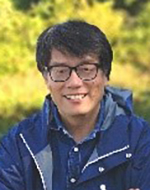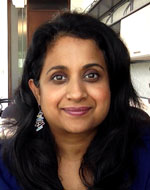Our full detailed program is now here -- https://smartgridcomm.info
Wednesday, 11 November
14:10 – 15:00 UTC
Professor Lang Tong, Cornell University
Keynotes 1: High-Fidelity and High-Resolution Monitoring of Smart Grids
Irwin and Joan Jacobs Professor of Engineering
School of Electrical and Computer Engineering
Cornell University, Ithaca, NY 14850
Abstract: We consider the problem of monitoring of power systems that exhibit a high degree of stochasticity but have limited direct measurements. Examples of such systems include distribution grids that have substantial inverter-based resources with limited PMU and SCADA deployment. To achieve high-fidelity and high-resolution monitoring, we bring to bear key concepts in statistical signal processing, communications, and modern machine learning tools. In particular, we discuss how Bayesian inference and deep learning can be used to overcome system unobservability for state estimation, how property test coupled with innovation convolution neural network can be used to detect bad and malicious data, and how subband coding methods can be applied to achieve ultra-high data rate point-on-waveform measurements.
Bio:
 Lang Tong is the Irwin and Joan Jacobs Professor of Engineering at Cornell University and the Cornell site Director of Power Systems Engineering Research Center (PSERC). He received a B.E. degree from Tsinghua University and a Ph.D. degree in electrical engineering from the University of Notre Dame. He held visiting positions at Stanford University, the University of California at Berkeley, the Delft University of Technology, and the Chalmers University of Technology in Sweden.
Lang Tong is the Irwin and Joan Jacobs Professor of Engineering at Cornell University and the Cornell site Director of Power Systems Engineering Research Center (PSERC). He received a B.E. degree from Tsinghua University and a Ph.D. degree in electrical engineering from the University of Notre Dame. He held visiting positions at Stanford University, the University of California at Berkeley, the Delft University of Technology, and the Chalmers University of Technology in Sweden.
Lang Tong's current research focuses on data analytics, optimization, and economic problems in energy and power systems. A Fellow of IEEE and the 2018 Fulbright Distinguished Chair in Alternative Energy, he received paper awards from the IEEE Circuit and Systems, Signal Processing, Communications, and Power and Energy Systems societies.
Thursday, 12 November
14:10 – 15:00 UTC
Professor Deepa Kundur, University of Toronto
Keynotes 2: Analytics-Driven Cyber-Physical Security for a Converged Smart Grid
Abstract: The field of cyber-physical security has evolved greatly over the last decade especially in the context of critical infrastructures such as the smart grid. The current challenges aim to address the increased sophistication of cyberattacks in the context of a more automated grid. Emerging polymorphic and stealthy attacks necessitate more coordinated and intelligent approaches to mitigation. In addition to the typical defence-in-depth paradigm, more harmonized protection and resilience strategies are essential. Development of next-generation tools for cyber-physical security requires the adoption of effective models that are compatible with salient trends in smart grid infrastructure including Information Technology/Operational Technology (IT/OT) convergence. The resulting data-rich cyber-physical environment from IT/OT convergence suggests a strong need for greater data-driven modelling paradigms and analytics. In this talk, we provide examples of deep learning in the context of anomaly detection for the cyber-physical protection of transmission protection systems. We then present a brave new world of opportunities for smart grid cyber-physical security using a data analytics-driven approach.
Bio:
 Deepa Kundur is Professor & Chair of The Edward S. Rogers Sr. Department of Electrical & Computer Engineering at the University of Toronto. A native of Toronto, Canada, she received the B.A.Sc., M.A.Sc., and Ph.D. degrees all in Electrical and Computer Engineering in 1993, 1995, and 1999, respectively, from the University of Toronto. Professor Kundur’s research interests lie at the interface of cybersecurity, signal processing and complex dynamical networks. She is an author of over 200 journal and conference papers and is also a recognized authority on cyber security issues. She has served in numerous conference executive organization roles, and has participated on several editorial boards and federal government funding panels. She currently serves on the Advisory Board of IEEE Spectrum. Professor Kundur’s research has received best paper recognitions at numerous venues including the 2015 IEEE Smart Grid Communications Conference, the 2015 IEEE Electrical Power and Energy Conference, the 2012 IEEE Canadian Conference on Electrical & Computer Engineering, the 2011 Cyber Security and Information Intelligence Research Workshop and the 2008 IEEE INFOCOM Workshop on Mission Critical Networks. She is a Fellow of the IEEE, a Fellow of the Canadian Academy of Engineering, and a Senior Fellow of Massey College.
Deepa Kundur is Professor & Chair of The Edward S. Rogers Sr. Department of Electrical & Computer Engineering at the University of Toronto. A native of Toronto, Canada, she received the B.A.Sc., M.A.Sc., and Ph.D. degrees all in Electrical and Computer Engineering in 1993, 1995, and 1999, respectively, from the University of Toronto. Professor Kundur’s research interests lie at the interface of cybersecurity, signal processing and complex dynamical networks. She is an author of over 200 journal and conference papers and is also a recognized authority on cyber security issues. She has served in numerous conference executive organization roles, and has participated on several editorial boards and federal government funding panels. She currently serves on the Advisory Board of IEEE Spectrum. Professor Kundur’s research has received best paper recognitions at numerous venues including the 2015 IEEE Smart Grid Communications Conference, the 2015 IEEE Electrical Power and Energy Conference, the 2012 IEEE Canadian Conference on Electrical & Computer Engineering, the 2011 Cyber Security and Information Intelligence Research Workshop and the 2008 IEEE INFOCOM Workshop on Mission Critical Networks. She is a Fellow of the IEEE, a Fellow of the Canadian Academy of Engineering, and a Senior Fellow of Massey College.






